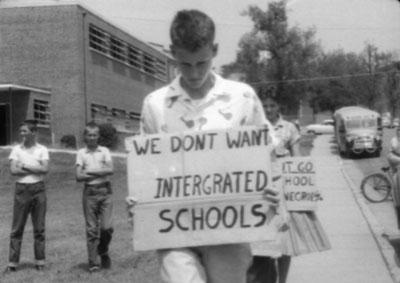In 1914, newspaper publisher William Randolph Hearst began producing weekly newsreels for theatrical distribution. Starting in 1927, Hearst newsreels were released by Metro-Goldwyn-Mayer studios. This relationship continued for the next 40 years until Hearst ceased production in 1967.
This program consists primarily of complete newsreels from the 1956 News of the Day theatrically released series and selections from its television division "Telenews Daily." With few exceptions, most of this footage has not been seen in its entirety since 1956
Hearst newsreels typically featured both foreign and domestic stories. Some of the major international events covered include the Olympic Winter Games in Italy; the sinking of the Andrea Doria; the "Suez Crisis" in Egypt; and Soviet troops crushing the ill-fated Hungarian uprising. In the United States, it was an election year, and there was some question whether President Eisenhower would seek re-election. Grace Kelly's royal wedding and the detonation of the H-Bomb by the U.S. also shared the headlines.
Stories on the critical issue of desegregation in the South were not included in the theatrically released newsreels. However, "Telenews Daily" covered it extensively for television. Highlights from this collection include an interview with Nat "King" Cole after he was attacked onstage during a performance; public protests to school integration; and footage of Martin Luther King, Jr. leading the Montgomery bus boycott. These films not only document the origins of the modern civil rights movement, they also illustrate the power of televised images to accelerate political and social change in America.
–Bryce Lowe
Running time: 150 min.
Preserved from 16mm and 35mm original acetate negatives and from 35mm acetate composite dupe negatives. Laboratory services by The Stanford Theatre Film Laboratory, Film Technology Company, Inc. Special thanks to: King Features. Ted Troll.






 Mobile Navigation
Mobile Navigation

